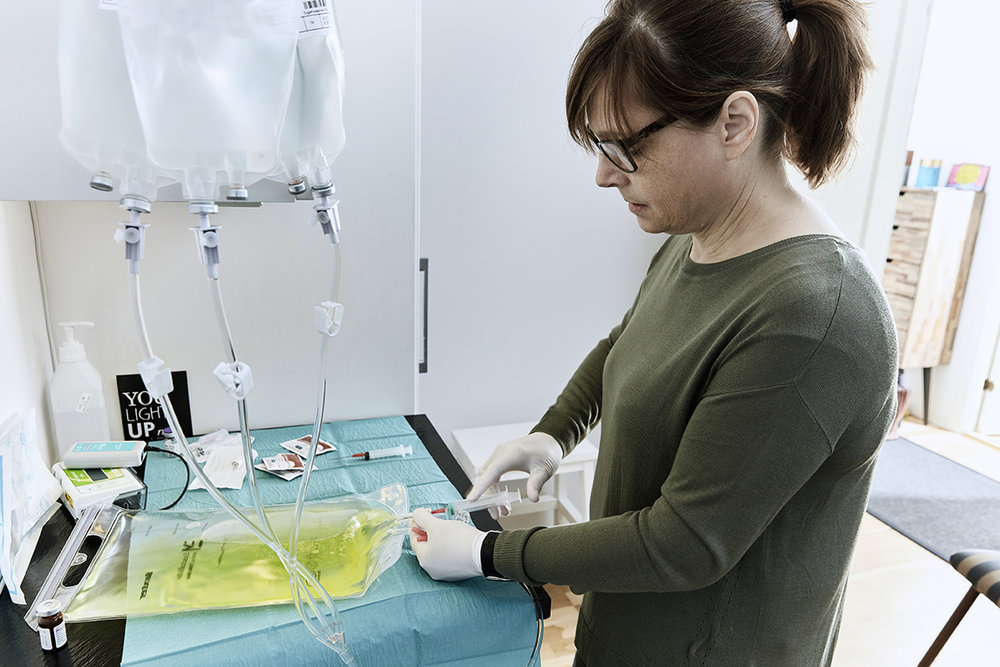My worst fear was to become what I am today: a short bowel patient
Marianne was diagnosed with cancer of the small intestine and became a short bowel patient. Today, she manages to live a life on home parenteral nutrition and works as a pastor.
When Marianne was 16 years old and in high school, she lost 10-12 kg, and her parents realized that something was wrong. Marianne was referred to the hospital and diagnosed with Crohn’s disease. Later on, when she was studying to become a nurse, she fell seriously ill and was admitted to hospital, where she had her first stoma. Since then, she has been through several surgeries. Today, Marianne needs parenteral support and has what she calls an extended handbag consisting of a liter of fluid, in case she feels the need.
Thinking that my life was over
As a young nurse, she studied in the Department of Surgical Gastroenterology and was permitted to observe a stoma operation. During her time working in the hospital, she noticed one particular type of patient. She describes them as “daddy-long-legs,” dangling from their IV stands. They were the patients on parenteral nutrition and today she is one of them.
In spring 2012, Marianne was diagnosed with cancer of the small intestine. Before she went in for bowel surgery, she was told that they did not know how much the surgeons needed to remove. After surgery, Marianne’s first question was whether she had been given a stoma. The response was that the surgeons had to remove the entire intestine, leaving just 45 cm. She now had a stoma and, on top of that, had to live with parenteral nutrition.
“I closed my eyes and thought, ‘Well, that was that life. It is all over now.’ I had a hard time accepting my new life.” Marianne had not been critically ill before and at first rejected the idea of parenteral nutrition.
Parenteral nutrition is a time-consuming process
Marianne has reduced ability to absorb fluids and nutrients, which means she needs to use parenteral nutrition to ensure she absorbs enough nutrients and fluid to survive. This requires her to hook herself up for 10 hours every night. “Every night, I need four liters of nutrition. I go upstairs in the evening to fix my picnic by transferring neutral fluids into a bag with fat, carbs and protein. I attach it to the pump and slip everything into my backpack.” This also results in her going to the toilet several times per night, disturbing her sleep pattern.

Management of short bowel syndrome (SBS) is chal- lenging, poses significant restrictions on the ability to engage in daily activities and affects ability to work. However, Marianne has found her own way of living with SBS. She gets on with her everyday life and does the things she loves. She works as a pastor in a church, where she is in charge of coordinating and planning events at refugee camps and distributing food to the homeless. Her workplace is very understanding about the issues connected with her disease and has pro- vided her with a room in case she needs to relax while she gives herself fluid.
Short bowel syndrome (SBS)
SBS is a life-threatening and complex and severe chronic condition associated with reduced or complete loss of intestinal function. In adults, the main underlying causes of SBS are major intestinal surgery following Crohn’s disease, ischemia, radiation damage or surgery. It is estimated that 20,000-40,000 people are affected by SBS in the U.S. and Europe. The most severely affected are dependent on daily parenteral support. This requires them to be connected to infusion lines and pumps, which pose significant restrictions on their ability to engage in daily activities.



